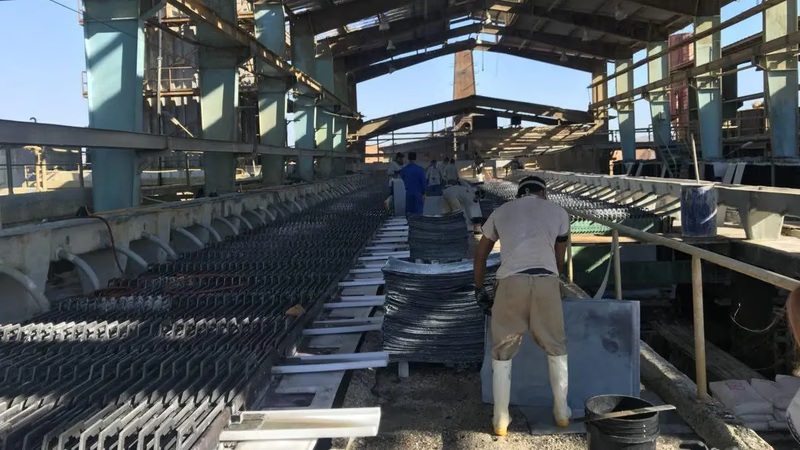
Zinc mining operations in West Asia showcase regional trade potential.
Iran has a significant presence in the zinc industry. The country possesses substantial zinc reserves and has several operational zinc mines, including the Angouran Mine. Iran aims to expand its zinc production capacity and reduce reliance on imports. The government has encouraged investment in mining and processing infrastructure to increase zinc production and export capabilities. Turkey is another important player in the zinc industry in West Asia. The country has zinc mines, such as the Kayseri Mine, and modern smelters to process zinc ores. Turkey's zinc industry caters to both domestic demand and exports. The country's strategic location between Europe, Asia, and Africa provides opportunities for zinc trade.
The zinc industry in West Asia is characterized by a mix of established mining operations, growing production capacities, and efforts to attract investment and develop infrastructure. The region's zinc industry benefits from the presence of zinc reserves, growing infrastructure and construction activities, and a strategic geographical location for trade. However, the industry is still evolving and has room for further development, including exploration of untapped zinc resources, adoption of advanced technologies, and diversification of markets and products.
The situation of the zinc industry in West Asian countries, both quantitatively and qualitatively, is very good and commendable, considering the time that this industry has been established in the countries. Of course, considering the age of about 23 years, this industry has seen many ups and downs and has been repeatedly disrespected by the authorities, including increasing the price of consumables without considering the staggering price reduction.
Zinc ingots in the world (LME) (from $ 317 to $ 720) in the past and the instability and volatility of government policy in the field of mining management and mineral distribution. For example, receiving 30% duties for the export of ingots, while receiving 4% duties for importing the same goods, paying export bonuses to exporters of minerals and zinc concentrate, while the minerals in the country do not cover the consumption of domestic factories and the shortage is quite noticeable.
The collapse of the mine wall was a double problem that put serious stress on the industry, reducing unit production by one-third. Currently, the shortage of sulfuric acid, which is one of the most basic needs of the zinc industry, has caused serious problems for the industry, with several factories closing down due to lack of acid, but Middle Eastern factories continue to produce and export zinc ingots.
The industry is concerned about the state of the mine and the distribution of minerals commensurate with the production capacity of factories. The only solution currently proposed is to pay special attention to the mine and use modern high-capacity tools, equipment, and machinery, use external and internal mining experts, speed up the operation of clearing and tailing and extraction of high-quality minerals.
Oman has made significant strides in developing its zinc industry. The Sohar Zinc Smelter in Oman is a notable facility that produces zinc ingots using advanced technology. Oman aims to establish itself as a regional hub for zinc production, and the government has implemented policies to attract foreign investment and promote industrial growth in the sector. Some other countries in the Middle East have smaller-scale zinc operations. For example, Saudi Arabia has some zinc deposits, but the industry is less developed compared to other countries in the region. Other countries such as the United Arab Emirates, Qatar, and Bahrain have limited zinc resources and are more reliant on imports to meet their zinc requirements.
-
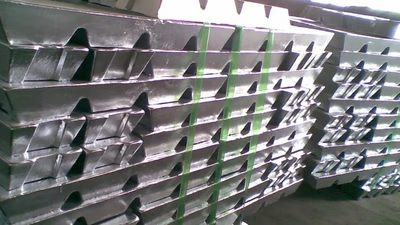
Asia plays a crucial role in the global zinc ingot market, with countries like China, India, South Korea, and Japan being significant importers. Despite being the largest producer, China imports zinc to meet its extensive industrial and construction demands. India relies on imports to support its growing infrastructure needs, while South Korea and Japan utilize zinc in their manufacturing sectors, including automotive and electronics. Understanding the types of zinc ingots—such as pure zinc and various purity levels—is essential for buyers. Zinc ingots are cost-effective and widely used across industries for their anti-corrosion properties. Buyers should connect with reputable sellers to get insights on pricing based on purity and intended use. Major exporters include China, South Korea, Kazakhstan, Uzbekistan, and Iran, which supply both regional and international markets. The demand for zinc ingots continues to rise due to their diverse applications in construction, transportation, and electronics.
-
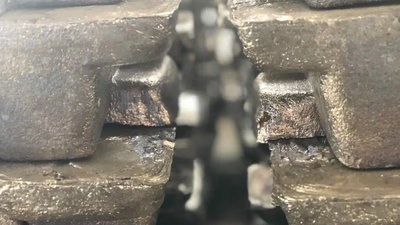
West Asia possesses significant, yet underutilized, zinc deposits primarily in Iran and Turkey. The region"s rapid urbanization and infrastructure development are driving demand for zinc-coated materials, particularly galvanized steel. Key mining operations include the Angouran Mine in Iran, known for its rich zinc deposits, and the Mehdiabad Mine, which is undergoing modernization to enhance production capabilities. The Sohar Zinc Smelter in Oman stands out as a major facility producing high-grade zinc ingots using advanced technology. Additionally, the Kayseri Mine in Turkey supplies ore to a modern smelting facility for both domestic use and export. European markets have shown strong interest in Middle Eastern zinc products, with significant export opportunities emerging. The adoption of modern mining techniques can improve efficiency and reduce environmental impacts while supporting economic diversification beyond oil and gas. As industries such as automotive manufacturing and electronics grow, so does the demand for zinc components. West Asia"s strategic location near major consuming markets offers logistical advantages for trade expansion.
-
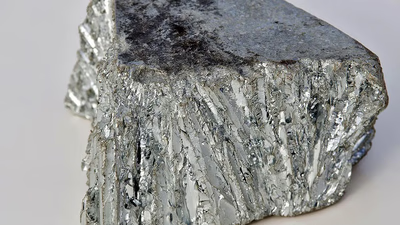
West Asia heavily relies on imports to meet its zinc needs, with major importers including Iran, Turkey, Saudi Arabia, and the UAE. The construction and infrastructure sectors significantly drive the demand for zinc, particularly for galvanized steel used in various projects. Iran stands out as a key player in the region"s zinc market, possessing some of the richest zinc mines globally. The country ranks third in world zinc reserves and is actively involved in both production and exportation. Despite its rich resources, Iran"s production levels are not aligned with global demands, leading to anticipated increases in global zinc prices over the next few years. Zinc is widely utilized across multiple industries such as automotive, electrical equipment manufacturing, and agriculture. Its importance extends to healthcare through its use in pharmaceuticals and dietary supplements. As awareness of zinc"s benefits grows, so does its application across various sectors in West Asia. "
-
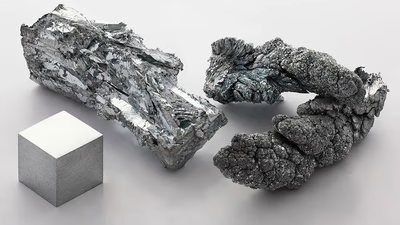
Zinc is primarily used in galvanizing, which protects steel and iron from corrosion, making it essential in construction, automotive manufacturing, and infrastructure. It serves as an alloying element with metals like copper to create brass, widely utilized in musical instruments and plumbing. Zinc alloys are favored in die casting due to their favorable melting points. Beyond industrial applications, zinc is crucial for human health, found in pharmaceuticals and dietary supplements that support immune function and wound healing. Zinc oxide is a key ingredient in sunscreens and cosmetics for UV protection. The metal also plays a role in battery production, with zinc-carbon batteries powering portable devices and zinc-air batteries used in hearing aids. In agriculture, zinc sulfate acts as a fertilizer and feed supplement. Its versatility extends to roofing materials due to its durability and aesthetic qualities. The automotive sector relies on zinc for various components, including car bodies and engine parts, while electrical equipment benefits from its conductivity and resistance to corrosion.
-
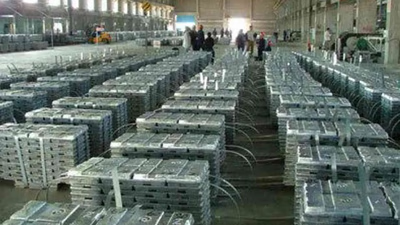
Zinc is a corrosion-resistant metal that protects other metals through a sacrificial coating of zinc oxide or carbonate. Its malleability allows it to be shaped into sheets and wires, while its high melting point of 419°C makes it suitable for high-temperature applications. Zinc"s electrical conductivity, though lower than copper or aluminum, enables its use as a protective coating on steel structures. It is commonly alloyed with other metals, notably in brass, enhancing properties for various applications including marine components and musical instruments. The primary sources of zinc are ores like zinc blende and calamine, with major mining operations in China, Australia, and Peru. Over 11 million tonnes are produced annually, primarily for galvanizing steel to prevent corrosion in construction and automotive sectors. Zinc also plays a role in batteries as an anode and is used in numerous alloys to improve strength and resistance to corrosion. Additionally, zinc compounds serve various industrial purposes such as catalysts and pigments, while zinc oxide finds applications in sunscreens due to its UV-blocking properties.
As an essential mineral for human health, zinc supports immune function and enzymatic reactions. "
-

The zinc industry in West Asia, particularly in Iran and Turkey, shows significant potential for growth. Iran is focusing on expanding its production capacity and reducing imports by investing in mining and processing infrastructure. The Angouran Mine is a key asset for Iran, while Turkey"s Kayseri Mine and modern smelters cater to both domestic and export markets. The region benefits from substantial zinc reserves, strategic geographical positioning, and increasing infrastructure development. However, challenges persist, including government policy volatility, export duties discrepancies, and a shortage of essential materials like sulfuric acid. Oman is emerging as a regional hub with the Sohar Zinc Smelter utilizing advanced technology to boost production. Other Middle Eastern countries have smaller operations or rely heavily on imports. Overall, while the zinc industry has commendable growth prospects, it requires modernization and investment to fully realize its potential. "
-

Shaanxi, Hunan, and Yunnan are key zinc-producing regions in China, hosting numerous mines and smelters that significantly contribute to the country"s zinc export capabilities. The Middle East, particularly Iran and Turkey, also plays a vital role in the global zinc market. Iran"s Angouran Mine is one of its largest, while Turkey"s Kayseri mine supports both domestic and export needs. Oman contributes with its Sohar Zinc Smelter. The strategic location of these regions reduces transportation costs for exporters and enhances their appeal in international markets. Zinc is widely used due to its properties such as ductility and corrosion resistance, making it essential for various industries. The recycling potential of zinc further boosts its demand across domestic and foreign markets. As a result, the Middle East has emerged as a significant hub for zinc ingot production, meeting both local industry needs and global market demands. "
-
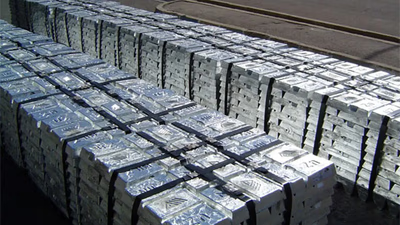
Zinc is a vital mineral that serves multiple roles in human health, acting as a cofactor for numerous enzymes essential for DNA and protein synthesis, cell division, and metabolism. It is crucial for a robust immune system, aiding in the development of immune cells and enhancing the body"s ability to combat infections. Zinc also supports wound healing and tissue repair, making it essential during growth phases in childhood and adolescence. Furthermore, it plays a significant role in reproductive health by influencing sperm production in males and egg development in females. Research indicates that zinc may improve gut health by addressing intestinal abnormalities and digestive issues. Additionally, zinc"s antioxidant properties help protect cells from oxidative stress, while its involvement in taste and smell receptors underscores its importance in appetite regulation. Deficiencies can lead to various health issues, including skin disorders and mental health challenges. Overall, maintaining adequate zinc levels is crucial for overall well-being.
-

Zinc is a bluish-white metal known for its lustrous appearance and relatively low density, making it lighter than metals like iron and copper. With a melting point of approximately 419°C and a boiling point of about 907°C, zinc is easy to melt and cast into various shapes. It ranks 2. 5 on the Mohs scale of hardness, indicating it is relatively soft, ductile, and malleable. Zinc reacts moderately with acids but does not react with water at room temperature. Commonly used as an alloying agent, zinc forms alloys such as brass and zinc-aluminum combinations that enhance strength and casting characteristics. Despite its weak tensile strength compared to carbon steel, zinc"s flexibility increases when alloyed. Its moderate conductivity makes it suitable for galvanizing processes and alkaline batteries.
Zinc"s applications span multiple industries including automotive, construction, health, and cosmetics due to its corrosion resistance and non-toxic nature. Various purity grades of zinc ingots are produced for different applications, contributing to its export as a significant commodity in global trade.
-

The zinc industry is poised for growth, driven by demand from construction, automotive, and electronics sectors. Its corrosion-resistant properties make zinc essential for galvanizing steel, which is increasingly used in infrastructure projects across West Asia. As urbanization accelerates in emerging economies, the need for zinc-coated materials will rise significantly. The adoption of electric vehicles (EVs) and renewable energy technologies is also expected to boost zinc demand, as it plays a crucial role in battery production and solar power installations. However, the industry faces challenges such as price volatility influenced by global economic conditions and geopolitical tensions. Environmental regulations are pushing producers to adopt cleaner technologies and improve sustainability practices. Innovations in mining and processing are enhancing efficiency and reducing costs, while ongoing research aims to expand zinc applications. The future of the zinc market will depend on monitoring these trends and technological advancements, as well as the exploration of new deposits.
In West Asia, production capacity is substantial but contingent on the availability of quality raw materials. Current price forecasts suggest fluctuations between $3,200 and $3,800 per ton this year. Overall economic growth in the Middle East will likely increase zinc consumption as countries diversify their economies.










